- Write by:
-
Sunday, July 8, 2018 - 5:16:22 PM
-
1046 Visit
-
Print
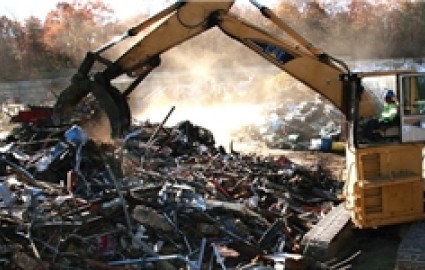
Mining News Pro - The customs duties on imports of 1.5 million tonnes of scrap will be $ 26 million, which is very small compared to customs revenues. Removing these amounts can be a great help for iron ore deposits, transportation fleets, energy consumption, and the economy of the country.
Unfortunately, one of the problems that the government faces is poor monitoring of the domestic market. As such, it is an inappropriate use of the tariff tool, which each year should have its own flexibility and impact by changing market conditions. Scrap is considered as one of the most important production inputs subject to this policy and has encountered difficulties in importing it.
Scrap is one of the most important raw materials used in the steel industry and is one of the main factors affecting the finished product price. Nowadays, taking into account the best conditions, there are about 1.5 million tons of scrap fraction in the country. How is it possible that a commodity with this import factor has a 5% import tariff? Perhaps, at first glance, it is assumed that 5% is not significant and is considered to be the floor of the tariff, but this negligible tariff is one of the reasons for steelmakers` unwillingness to import scrap.
At present, the domestic price of scrap is 1700 USD / kg. This is while the global price of this raw material is about 350 USD / ton (1500 USD / kg), assuming the price is 4200 USD. With the introduction of the tariff and the value added tax, the price of this input will be about 1710 USD / kg and will be equivalent to the price of domestic scrap, which, taking into account the cost of transportation, will not be attractive to steelmakers.
The government should cooperate fully with the producer in the current situation in which the country is in urgent need of scrap. Undoubtedly, the added value of steel production is far greater than 14% of the revenue from the scrap import, and its profits will return directly and indirectly to the state pocket.
All countries active in the steel industry are considering various incentives to supply their scrap. For example, countries such as Turkey have considered tax exemptions for scrap importer companies. This is while imports of scrap in the country are subject to 9% VAT and 5% customs duty.
Interestingly, customs duties on imports of 1.5 million tonnes of scrap will amount to $ 26 million, which is very small in relation to customs revenues. Removing these amounts could be a major contributor to iron ore reserves, transportation fleets, energy consumption, and the economy. With the increase in scrap imports, domestic prices are also moderated and the country`s steel industry will be well off.
It should be noted that only the construction of new steel mills can not produce 55 million people in 1404. There are even more simple solutions that can be used to boost production productivity, which is far better than the factory. With a 10% increase in scrap utilization, it could reach 55 million tonnes a year in 1400, which would account for more than half of the country`s oil sales, so that in the near future the country`s dependence on oil revenues would be minimized.
Another benefit of this is the stabilization of foreign customers ahead of Saudi Arabia, Oman and the UAE, which are trying to compete in the regional market. Saudi Arabia has already pushed for plans to build steel units with a capacity of 10 million (the first phase) in order to reduce dependence on oil revenues. Therefore, before the emergence of the countries of the region, the region`s market should be in the hands of Iran, which will surely be possible with the import of scrap.
Short Link:
https://www.miningnews.ir/En/News/209871
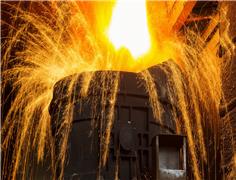
Iron ore futures prices ticked lower on Monday, weighed down by diminishing hopes of more stimulus in top consumer ...

Interros, Nornickel’s largest shareholder, on Monday called allegations by fellow shareholder Rusal about undervalued ...

AbraSilver Resource said on Monday it has received investments from both Kinross Gold and Central Puerto, Argentina’s ...

Gold took a tumble as haven demand waned after geopolitical tensions eased in the Middle East.
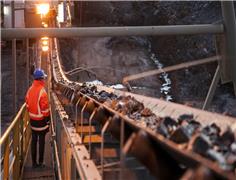
Copper traded near $10,000 a ton, hitting a new two-year high on its way, as investors continue to pile in on a bet that ...
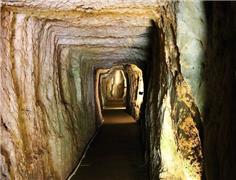
Adriatic Metals is taking over as the operator of the Rupice deposit development, which is part of the company’s Vares ...

A Russian arbitration court ruled on Monday that four units of Swiss commodities trader Glencore will pay more than 11.4 ...
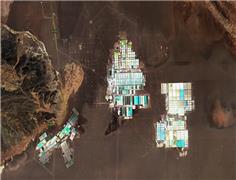
The four largest indigenous communities in Chile’s Atacama salt flat suspended dialogue with state-run copper giant ...
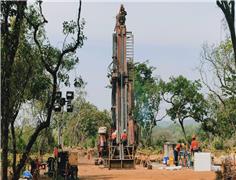
A prefeasibility study for Predictive Discovery’s (ASX: PDI) Bankan gold project in Guinea gives it a net present value ...
No comments have been posted yet ...